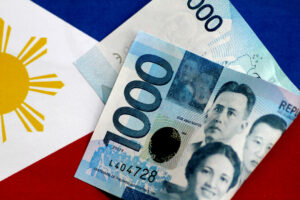Debt watchers assign ratings to PHL Sukuk issue
FITCH RATINGS, Moody’s Investors Service and S&P Global Ratings and have given investment-grade ratings to the Philippines’ proposed maiden issue of Sukuk bonds. Moody’s has assigned the proposed bond issue a “Baa2” rating, Fitch rated the notes “BBB,” and S&P Global gave a preliminary “BBB+” score, all at par with their current ratings for the […]

FITCH RATINGS, Moody’s Investors Service and S&P Global Ratings and have given investment-grade ratings to the Philippines’ proposed maiden issue of Sukuk bonds.
Moody’s has assigned the proposed bond issue a “Baa2” rating, Fitch rated the notes “BBB,” and S&P Global gave a preliminary “BBB+” score, all at par with their current ratings for the Philippines’ sovereign debt.
The government on Monday launched its first-ever offering of Sukuk bonds as it mandated banks for the sale of benchmark-sized 5.5-year papers. Benchmark-sized issues are worth at least $500 million.
On Tuesday, Finance Secretary Benjamin E. Diokno said at a Palace briefing that the Sukuk issue is targeted to be settled by mid-December.
“According to the transaction documents available to Moody’s, the Sukuk will constitute direct, unconditional and unsubordinated obligations of the Government of the Philippines (the issuer). It will be issued by a special purpose vehicle (ROP Sukuk Trust) and rank pari passu with all of the issuer’s current and future senior unsecured external debt obligations,”Moody’s said in a statement on Monday.
“The ratings mirror the Government of the Philippines’ issuer rating of ‘Baa2’. Moody’s notes that its Sukuk ratings do not express an opinion on the structures’ compliance with Shari’ah law,” it added.
Moody’s rating for the Philippines as an issuer is supported by the country’s high potential growth and moderate government debt, it said.
The country has also improved its fiscal position and has enough foreign exchange buffers against external risks, Moody’s added.
“Even as it emerges from the pandemic with a degree of economic scarring, Moody’s expects the recovery in real GDP (gross domestic product) growth to persist amid the deterioration in global credit conditions in the near term, and converge towards potential rates of around 6% per annum,” it said.
“At the same time, the Philippines has sustained strong access to domestic and international funding markets, a stable banking system and ample foreign-currency reserves to weather global capital flow volatility,” it added.
The Philippine economy will likely continue to expand amid favorable demographics and better investment conditions, Moody’s said, unless there is a significant weakening in its growth drivers. Other risks to the outlook include elevated inflation and climate shocks.
For its part, S&P Global likewise said its preliminary “BBB+” grade for the Sukuk bonds “reflects the sovereign credit rating on the Philippines, the obligor.”
“ROP Sukuk Trust will use at least 55% of the proceeds of the Sukuk issuance to purchase real estate assets from the sponsor, the Philippines, and the remaining portion to purchase Shari’ah-compliant commodities,” it said.
S&P said its preliminary rating is based on details in draft documents as of Oct. 23 provided to them and could change if there are significant modifications in the final legal documents for the issue.
Lastly, Fitch said its rating on the Sukuk issue “is driven solely by the Philippines’ Issuer Default Rating (IDR), which we affirmed at ‘BBB’ with a ‘stable’ outlook in November 2023.”
“We have not considered any underlying assets or collateral provided when assigning the rating, as we believe the issuer’s ability to satisfy payments due on the proposed Sukuk will ultimately depend on the government satisfying its unsecured payment obligations to the issuer under the transaction documents, as described in the offering memorandum and other supplementary documents,” it said.
“We also believe the government would be required to ensure full and timely repayment of ROP Sukuk Trust’s obligations due to the government’s various roles and obligations under the Sukuk structure and documentation,” Fitch added.
The debt watcher’s rating on the Sukuk issue will be affected by any changes to the Philippines’ long-term foreign currency IDR, it said.


















